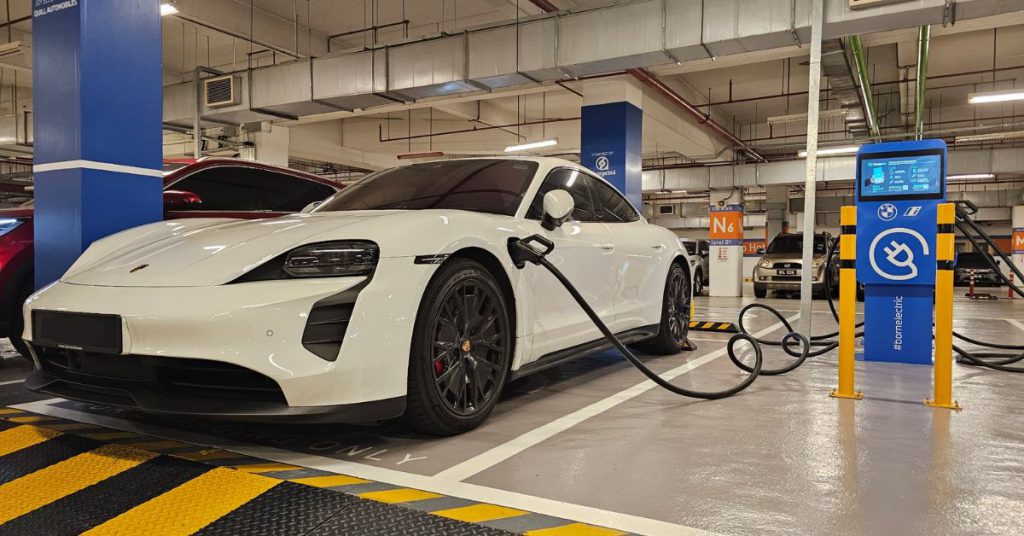[Written in partnership with ChargeSini, but the editorial team had full control over the content.]
With the rapid rise in electric vehicle (EV) adoption and increasing demand for charging infrastructure in Malaysia, the need for expansion is paramount.
At least, that’s what local charging point operator ChargeSini believes.
“The EV market presents a vast opportunity, but capital investment is crucial to meet the surging demand effectively,” the team shared with Vulcan Post.
As such, ChargeSini is now raising for its Series A, targeting to raise US$6 million within a timeframe of six months, placing it at a valuation of US$120 million.
“This funding round is pivotal as it allows us to capitalise on the momentum we’ve gained in building EV charging infrastructure,” they explained.
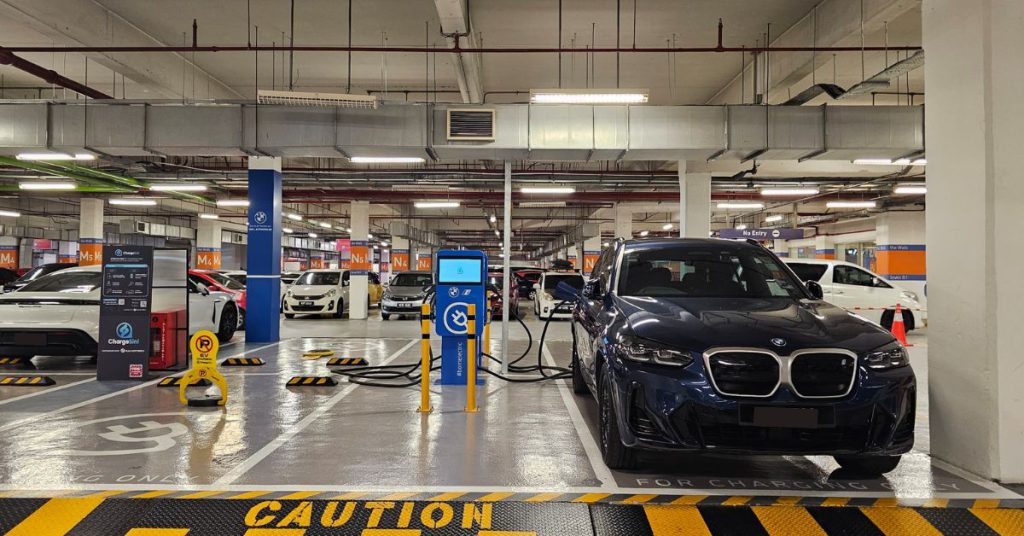
ChargeSini also shared that they’ve signed numerous ongoing projects, with concrete plans to construct over 300 new charging points across prime locations in Malaysia by end of this year.
After successfully going the equity crowdfunding route previously to raise RM5.6 million, ChargeSini is now targeting institutional investors such as venture capitalists and private equity firms who can lead them into subsequent rounds of funding.
But aside from raising its series A, ChargeSini is also opening up its business to another kind of investor—project partners.
Own your own stations
ChargeSini revealed to Vulcan Post that along with the Series A investment opportunity, the company will be shifting its business model away from traditional ownership structures.
Moving towards an asset-light business model, ChargeSini is inviting external investors and individual stakeholders to participate as project partners by purchasing and owning ChargeSini’s EV charging stations at specific locations.
“This innovative approach allows ChargeSini to leverage upfront capital from investors, thereby mitigating the need for extensive asset ownership,” the team explained.
ChargeSini’s project partners have the opportunity to invest in specific projects or stations, with ownership starting at an investment of RM100,000 per EV station.
This shift in business models was sparked by the urgent need to optimise capital efficiency, the team elaborated.
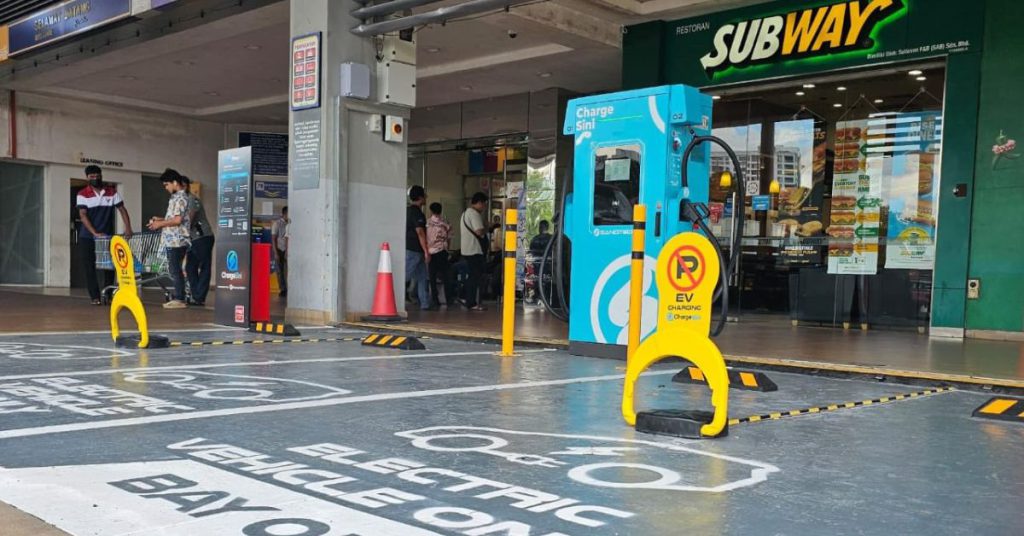
“With the government targeting 500,000 EVs on the road by 2030 as part of its sustainability goals, the scale of the challenge became clear,” they pointed out.
To address the demand, ChargeSini shared there would be a requirement of at least 50,000 charging ports in the next five years.
“However, our previous heavy asset ownership model posed constraints on scalability and required substantial financial commitments, prompting us to explore alternative approaches,” they said.
When relying solely on internal resources proved to be insufficient, ChargeSini saw the answer in a collaborative approach.
This not only alleviates the burden of capital on ChargeSini, but it also fosters a synergistic ecosystem, much like that of a franchise model.
How it operates
Under the new model, all net profits from a station will go to the project partners.
On the topic of expected return on investment (ROI) for project partners, ChargeSini said that would be contingent upon the growth of the numbers of EV in Malaysia.
“We anticipate a booming EV market within the next two years, with an expected ROI timeframe of two to four years, depending on EV adoption rates and usage patterns,” they elaborated.
The EV startup is already selling new locations currently, with the investment from project investors being utilised to construct these stations.
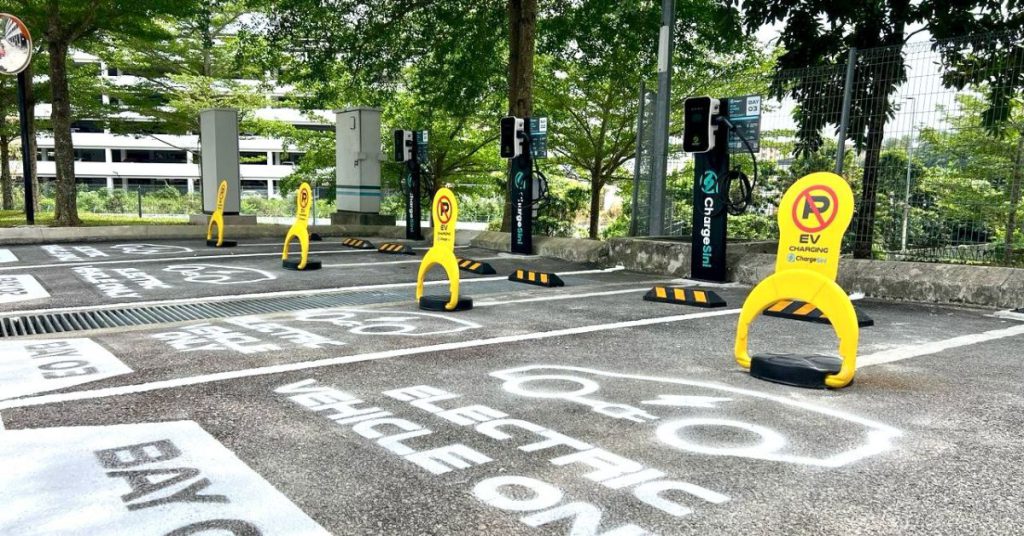
They have already listed a number of bundled locations on their website that potential project partners can start booking.
Upon booking a lot, investors will be required to provide a deposit to secure their reservation.
Following this, ChargeSini will provide a clear timeline outlining the expected completion and readiness of the charging station. Once the investor has paid the full amount, ownership of the respective stations will be officially transferred to them.
The procedure is comparable to property projects, ChargeSini explained.
The machines will also come with a warranty. That means project partners will receive comprehensive support and maintenance throughout the duration of the partnership.
Project partners also have the flexibility to sell back their lots, ensuring an exit strategy and ensuring liquidity for their investment.
Putting the EV in evolution
At the time of writing, ChargeSini has already secured more than 10 bookings.
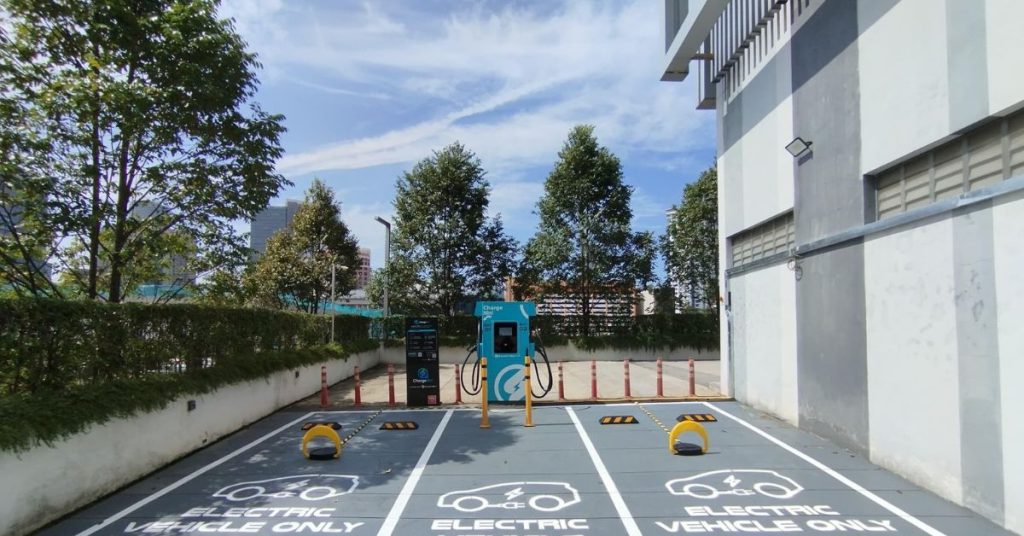
They clarified that there are no specific targets for the number of lots booked or capital raised. Rather, they want to focus on delivering value to investors.
Beyond this business model, ChargeSini will continue to maintain self-owned stations in other locations.
“This hybrid approach ensures a balanced portfolio of owned and partner-owned stations, maximising market coverage and profitability,” the team concluded.
Through this evolved business model that’s in conjunction with its Series A fundraising, ChargeSini hopes to expand its charging station’s presence, in turn advancing the adoption of sustainable transportation solutions in Malaysia.
Featured Image Credit: ChargeSini



